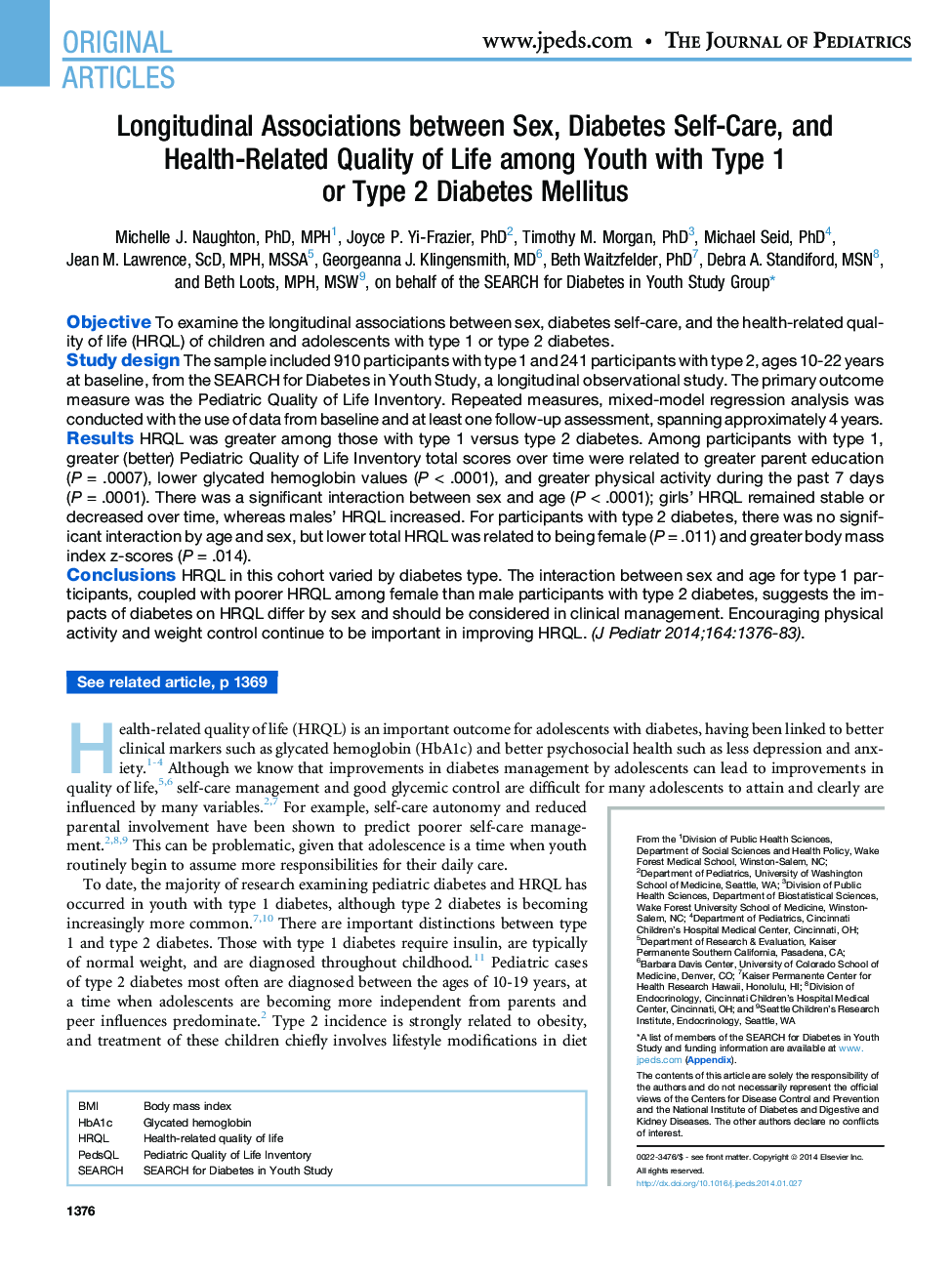| کد مقاله | کد نشریه | سال انتشار | مقاله انگلیسی | نسخه تمام متن |
|---|---|---|---|---|
| 6220665 | 1607454 | 2014 | 9 صفحه PDF | دانلود رایگان |

ObjectiveTo examine the longitudinal associations between sex, diabetes self-care, and the health-related quality of life (HRQL) of children and adolescents with type 1 or type 2 diabetes.Study designThe sample included 910 participants with type 1 and 241 participants with type 2, ages 10-22 years at baseline, from the SEARCH for Diabetes in Youth Study, a longitudinal observational study. The primary outcome measure was the Pediatric Quality of Life Inventory. Repeated measures, mixed-model regression analysis was conducted with the use of data from baseline and at least one follow-up assessment, spanning approximately 4 years.ResultsHRQL was greater among those with type 1 versus type 2 diabetes. Among participants with type 1, greater (better) Pediatric Quality of Life Inventory total scores over time were related to greater parent education (P = .0007), lower glycated hemoglobin values (P < .0001), and greater physical activity during the past 7 days (PÂ = .0001). There was a significant interaction between sex and age (P < .0001); girls' HRQL remained stable or decreased over time, whereas males' HRQL increased. For participants with type 2 diabetes, there was no significant interaction by age and sex, but lower total HRQL was related to being female (P = .011) and greater body mass index z-scores (P = .014).ConclusionsHRQL in this cohort varied by diabetes type. The interaction between sex and age for type 1 participants, coupled with poorer HRQL among female than male participants with type 2 diabetes, suggests the impacts of diabetes on HRQL differ by sex and should be considered in clinical management. Encouraging physical activity and weight control continue to be important in improving HRQL.
Journal: The Journal of Pediatrics - Volume 164, Issue 6, June 2014, Pages 1376-1383.e1